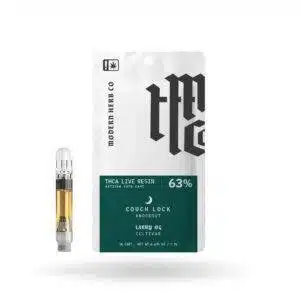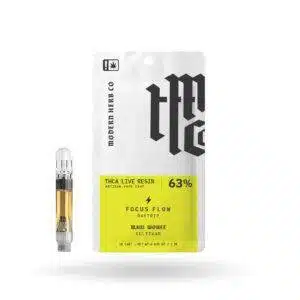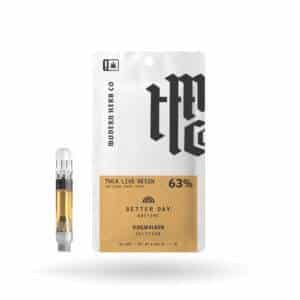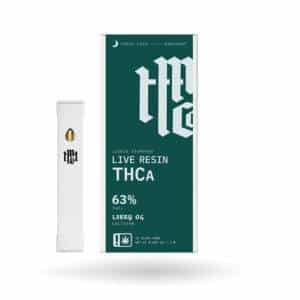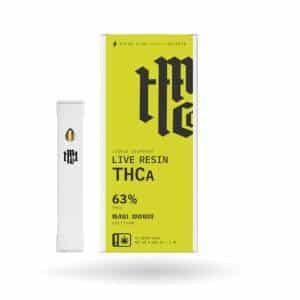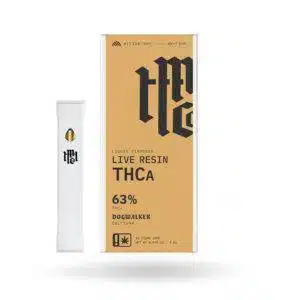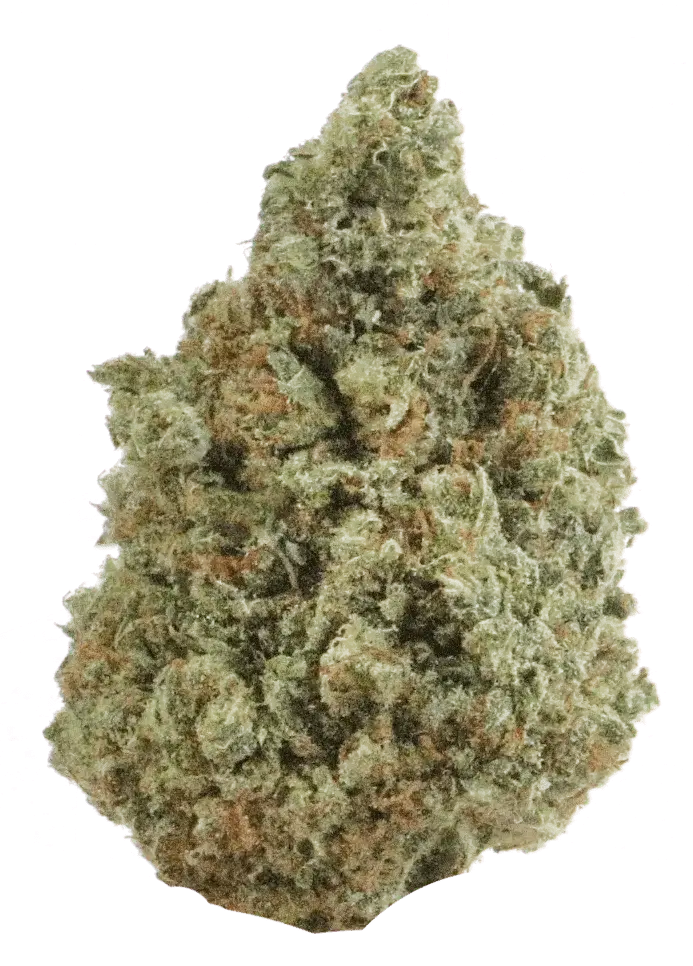THCA: HOW IS IT LEGAL TO BUY CANNABIS ONLINE?
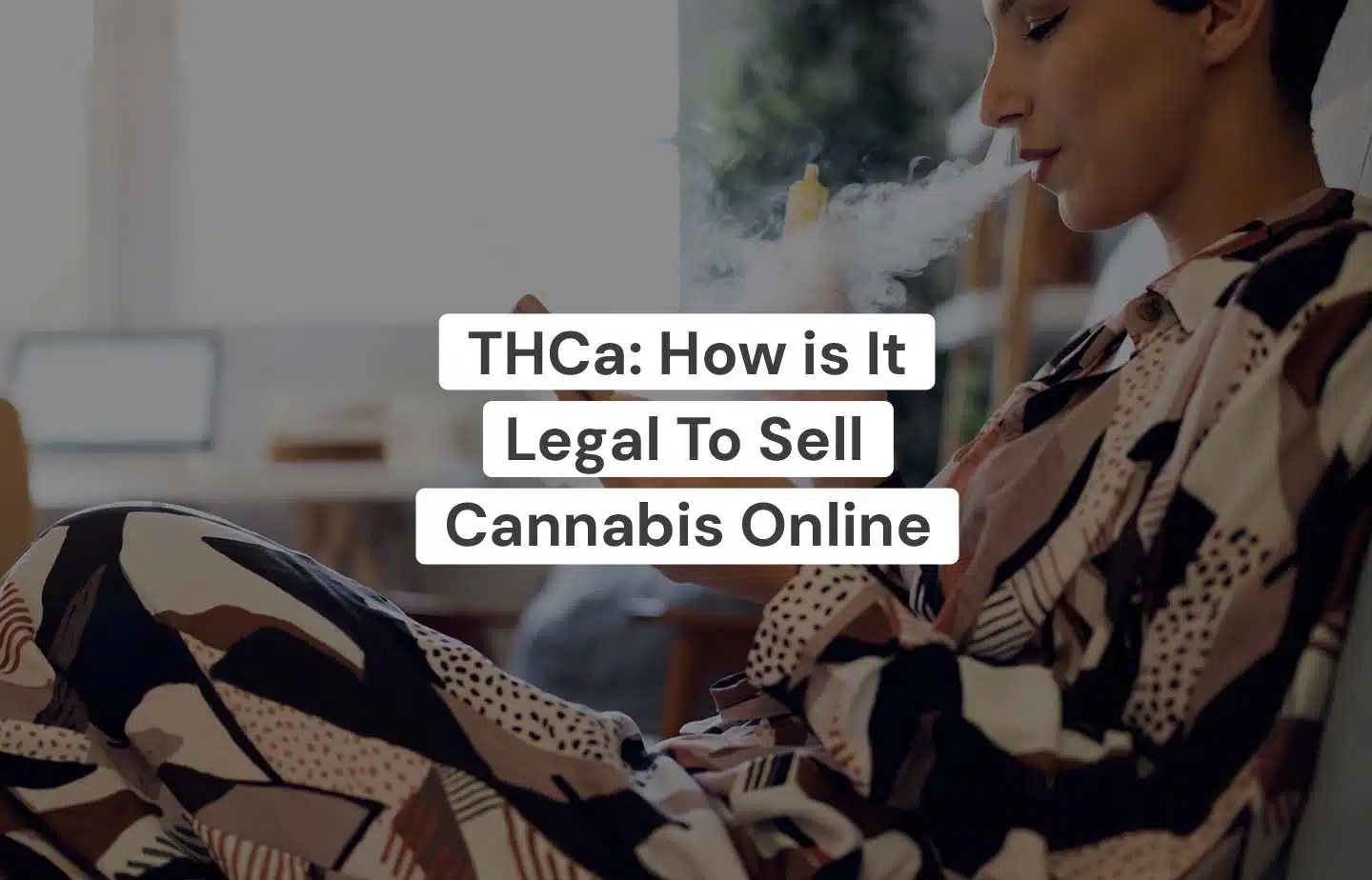
Looking on the internet these days, you may have noticed that there are an increasing amount of products with psychotropic effects available for purchase online. But how is that possible when cannabis is regulated state by state?
In 2018 the Farm Bill was passed allowing for the production of hemp crops and the distribution of hemp-based goods and flower. For clarity, hemp and CBD (in modern times) are the same thing and since we know the products as CBD we will refer to them as such hereforward.
From there Delta 8, a psychotropic compound that is inherent in both CBD and cannabis plants was concentrated from CBD and began being sold in products across the US. Since the compound was extracted from CBD it is legal to sell nationwide.
In contrast, if the same compound is extracted from cannabis it is not allowed to be sold outside of the state where it was extracted from the cannabis plant.
Since the proliferation of Delta 8 products, other psychoactive and psychotropic cannabinoids including THCa, THCv, Delta 9 THC, HHC, and others have been made available after being extracted or made from CBD (hemp) plants legally.
In the same way Delta 8 is found in both cannabis and CBD plants so are these other cannabinoids. Technically all CBD plants on the market are actually low THC or Type 3 cannabis plants. There isn’t actually a difference between a cannabis and CBD plant other than the total THC concentration. This is confusing so let’s dive in a little further.
Hemp VS. Cannabis
CBD and cannabis are both plants of the flowering genus Cannabaceae. The primary distinction of the two variations of this same plant is a legal one based on the 2018 Farm Bill, which legalized hemp agriculture in the United States.
Under the legislation, cannabis with a concentration of Delta 9 THC (the cannabinoid largely responsible for the classic cannabis high) of 0.3% or less on a dry weight basis is legal to be sold as CBD nationwide.
Additionally, products made with any cannabinoid extracted from this low THC ‘hemp’ are also legal. So this includes the compound Delta 8 THC, and Delta 9 THC so long as it’s under the 0.3% dry weight.
Thats also confusing so let’s clarify that a heavier product can have a greater amount of Delta 9 because it’s heavier and the concentration of Delta 9 is still representing 0.3% of the product weight. Conversly a lighter product would have to have less Delta 9 THC to maintain that legal requirment.
Cannabis with a Delta 9 THC concentration greater than 0.3% of the product total weight (dry weight) is still considered cannabis and is then illegal to be sold in states where it’s not yet legalized as well as between two legal states.
Because the concentration of Delta 9 THC is the only determining factor of whether a plant is or is not hemp, the presence and concentration of most other cannabinoids are irrelevant when it comes to the legality of the plant and products made from it.
Cannabis Delta 9 vs Hemp or CBD Delta 9
It is important to understand that the Delta 9 THC in legal hemp is the same compound found in other forms of cannabis. Since it is the same compound, it has the same effects and will get a person high if they consume enough of it. For example, 5 milligrams of hemp Delta 9 will have the same effect as 5 milligrams of Delta 9 THC from cannabis.
The only difference between the two is the source plant where it is derived from.
As all forms of hemp and high-THC cannabis are closely related, skilled plant breeders are able to breed the desirable traits, particularly terpene profiles, of many popular cannabis strains into low-THC versions. For example, the popular cannabis strains Northern Lights and Bubba Kush are both available in high-CBD, low-THC cultivars, making them legal hemp under the 2018 Farm Bill.
Similarly, some breeders have focused on creating new strains that express relatively high levels of other cannabinoids, such as cannabigerol (CBG), tetrahydrocannabivarin (THCv), and cannabinol (CBN). Just like THC, these cannabinoids are identical, regardless of the source.
For example, CBN from hemp and CBN from regulated cannabis are the same compound and will have the same effects. And because these new strains are 0.3% Delta 9 THC or less, they are all considered hemp, making them legal to obtain, sell, or consume nationally.
THCa, or tetrahydrocannabinolic acid, is a special case however because it is the precursor to Delta 9 THC, varying only by the addition of a small molecule called a carboxyl group. With this added molecule, the compound is the acidic form of THC, known as THCa.
This initial form of THC is not psychotropic, although it does have other beneficial qualities. Once THCa is heated by any method including through vaporization or burning, it loses the carboxyl group in a process known as decarboxylation and converts to the psychotropic version of itself, Delta 9 THC.
With nearly all cannabis including high THC culitvars, the live plants and freshly harvested flowers are high in THCa and do not generally have high levels of Delta 9 THC.
As the plant material dries and cures, some of the THCa slowly converts to Delta 9, but most of the psychotropic potential still lies in unactivated THCa. Due to this, the calculation of Delta 9 THC concentration for pre-harvest compliance tests factors in THCa after decarboxylation into a determination of “total THC,” making cannabis that is too high in THCa illegal cannabis, and not hemp, under the 2018 Farm Bill.
Why is Hemp THCa Legal?
So how can THCa be legal? In a recent legal analysis, cannabis attorney Rob Kight notes that U.S. Department of Agriculture rules specify that THC levels in hemp be determined through a mandated pre-harvest lab test of Delta 9 THC concentration. As long as the test shows that a crop does not exceed 0.3% Delta 9 THC, it is hemp and federally legal across the country.
As this pre-harvest THC concentration test is the only time it is determined if a crop is legal hemp or not, subsequent tests that show higher levels of Delta 9 THC are technically irrelevant. Under the Farm Bill and USDA regulations, the crop is still legal hemp.
Because the concentration of Delta 9 THC is the only determining factor in the legality of hemp, the presence of other cannabinoids, including THCa, does not negate the legal status of the hemp or products made from it. Additionally, the Farm Bill only grants the USDA authority over hemp production (cultivation). The regulation of hemp products for consumption has been given to the FDA, which has so far declined to adopt such regulations.
Kight notes in a separate legal analysis that some skilled growers have demonstrated the ability to grow hemp that passes the pre-harvest laboratory test for THC concentration, proving that the crop is legal hemp. But after carefully drying, curing, and trimming the hemp, the grower is left with flowers with much higher levels of THCa.
The flowers are still legal hemp, however, because the crop successfully passed the test to determine its legality. Similarly, all products made from the flowers are legal hemp under federal law. The final concentration of THCa is legally irrelevant. Kight also notes that some states have their own laws regarding THCa, so consumers should be sure to check the legality of hemp THCa products in their area.
Many people might wonder why the law is so convoluted. The answer lies in some of the reasons behind the 2018 Farm Bill’s legalization of hemp. At that time, many of our lawmakers in Congress were not yet ready to take the step of fully legalizing cannabis on the national level. However, they recognized that many people were taking advantage of the preliminary, limited legalization of hemp through a pilot program authorized by the 2014 Farm Bill.
At the same time, the healing benefits of cannabis were being recognized as the success patients were finding in the first states to legalize medical cannabis became evident. Under the 2014 pilot program, the fledgling hemp industry grew as people also began to recognize the health and wellness properties of CBD and later, other cannabinoids.
As federal lawmakers became aware that seriously ill people and their families were seeking access to cannabis and higher-potency CBD products, they saw the legalization of hemp via the 2018 Farm Bill as a way to provide such access to people in states that had not yet legalized medical cannabis.
While the 2018 Farm Bill legalizes hemp and hemp products including THCa on a national level, some states have taken steps to regulate the cannabinoid more tightly. For this reason, consumers who plan to buy THCa products at brick-and-mortar retailers or online should check state and local laws to confirm the legality of THCa in their area.
THCA And Its Benefits
As mentioned above, THCa is the acidic form of Delta 9 THC, the cannabinoid primarily responsible for the psychotropic effects of cannabis. In this acid form, THCa does not have psychoactive effects and cannot get you high. However, THCa is easily converted to THC with heat through a process called decarboxylation. THCa that is vaped or smoked is naturally decarboxylated, or activated, into THC and will thus be psychoactive and get you high.
Although THCa in its natural form will not get you high when ingested, decarboxylation converts it to nearly 90% THC, making the precursor nearly as powerful as THC. Decarboxylation of THCa also occurs as cannabis is dried and cured, although at a much slower rate.
Like many other cannabinoids, THCa has health and wellness benefits, including potential anti-inflammatory, neuroprotective, and anti-emetic properties. The cannabinoid has also shown effectiveness in clinical trials for treating drug-resistant tumors and epilepsy, although more research is needed. Additionally, THCa’s neuroprotective properties might be helpful in the treatment of diseases such as Alzheimer’s, Parkinson’s, and multiple sclerosis.
Types Of THCA Products
The growing popularity of THCa and consumers’ desire to take advantage of the benefits it provides has led manufacturers to offer several different product types that contain the beneficial cannabinoid.
Vapes, disposables, and flower are the most popular options because they are consumed with heat which decarbs the THCa and converts it into the pshytropic form of THC. That being said, as THCa has other benefits some people choose to also consume it in edibles, tinctures, and softgels.
The potency of quality of the THCa can vary from product to product depending on the vendor so it is best to purchase from a quality vendor. We sell THCa vapes and disposables compliantly to states where its allowed and offer craft live resin extract in the products as well to create a fuller spectrum.
Conclusion
Under the 2018 Farm Bill, cannabis and hemp plants that contain no more than 0.3% Delta 9 THC by dry weight as determined by a pre-harvest lab test are considered hemp and can be grown legally across the country. Products made from legal hemp are also legal and can be sold coast to coast, with some exceptions.
Although the amount of Delta 9 THC in hemp is low, it is the same compound as the THC found in cannabis. As a result, it has the same effects, including the ability to produce a high if enough is consumed. Other cannabinoids are also identical, no matter the source. THCa from cannabis and THCa from hemp are the same compound with the same effects, for example.
While the 2018 Farm Bill legalized hemp and hemp products under federal law, some states have taken steps to regulate THCa because of its similarity to Delta 9 THC. As a result, consumers should confirm the legality of THCa and products in their area before purchase.
As the benefits of THCa become better known, more and more products can be found at local retailers and from online stores that can ship across the country. THCa edibles and vapes are the most common, although other options including tinctures, flower, and pre-rolls are also available. Consumers can ensure they are getting safe and effective products by purchasing from a reputable source that provides independent lab testing results for potency and purity.
FREQUENTLY ASKED QUESTIONS
What is THCA?
THCa is tetrahydrocannabinolic acid, one of more than 100 distinct compounds found in the cannabis plant known as cannabinoids. It is found in varying amounts in live hemp and cannabis plants, usually at concentrations higher than THC. In its raw form, THCa is not psychoactive when ingested and will not get you high. Although it does not produce intoxicating effects, THCa has been found to have potential therapeutic benefits. Research suggests that the cannabinoid could have therapeutic potential and may offer a range of benefits such as antiemetic, anti-inflammatory, and neuroprotectant effects. THCa is a precursor to Delta 9 THC and can be converted into the latter psychotropic cannabinoid through a process known as activation or decarboxylation.
Is THCa legal?
THCa from hemp is federally legal under the 2018 Farm Bill, which legalized hemp and products made from the plant. Some states, however, have taken steps to regulate THCa, so consumers interested in buying products with the cannabinoid should be sure to check state and local laws for their area.
How does the 2018 Farm Bill impact the legality of THCA?
The 2018 Farm Bill legalized hemp, which is defined as cannabis with a Delta 9 THC concentration not exceeding 0.3% on a dry weight basis. The legislation does not regulate other cannabinoids or products made from legal hemp, making hemp THCa products legal under federal law. As stated above, the concentrations of other cannabinoids in cannabis do not play a role in the legality of hemp or hemp products. If the Delta 9 THC concentration in a hemp product does not exceed 0.3% by dry weight, then it is not a controlled substance under federal law.
How do state laws influence the legality of THCA in specific regions?
Because of its close similarity to psychoactive THC, some states have regulated THCa in hemp and products made with it. For this reason, consumers who plan to buy THCa products at brick-and-mortar retailers or online should check state and local laws to confirm the legality of THCa in their area.
Why is it legal to buy THCA products online?
Because hemp THCa is federally legal under the 2018 Farm Bill, products made with it are also legal under federal law. As a result, it is legal to ship THCa and other hemp products to most addresses in the United States. This is in contrast to regulated cannabis products, which cannot be legally put in the mail or shipped across state lines and must be purchased from a licensed cannabis dispensary or delivery service. As mentioned, consumers should always confirm the legality of THCa products in their area, as some states have taken steps to regulate the cannabinoid.
How can consumers order THCA products online?
There are dozens if not hundreds of online retailers selling hemp THCa products, which can make choosing one seem like an overwhelming feat. For best results, choose a supplier with a reputation for quality and integrity. Conscientious manufacturers will always provide a certificate of analysis (COA)from an independent testing laboratory that can be accessed online. The COA will show the concentration of cannabinoids in the product and confirm the absence of potentially harmful contaminants.
What THCA products are available online?
As THCa has become more popular with consumers, more and more manufacturers are offering products made with it. Vapes and edibles are some of the most popular products, with other options including tinctures, THCa cannabis flower, and pre-rolled joints also available online and from local retailers in many states.

